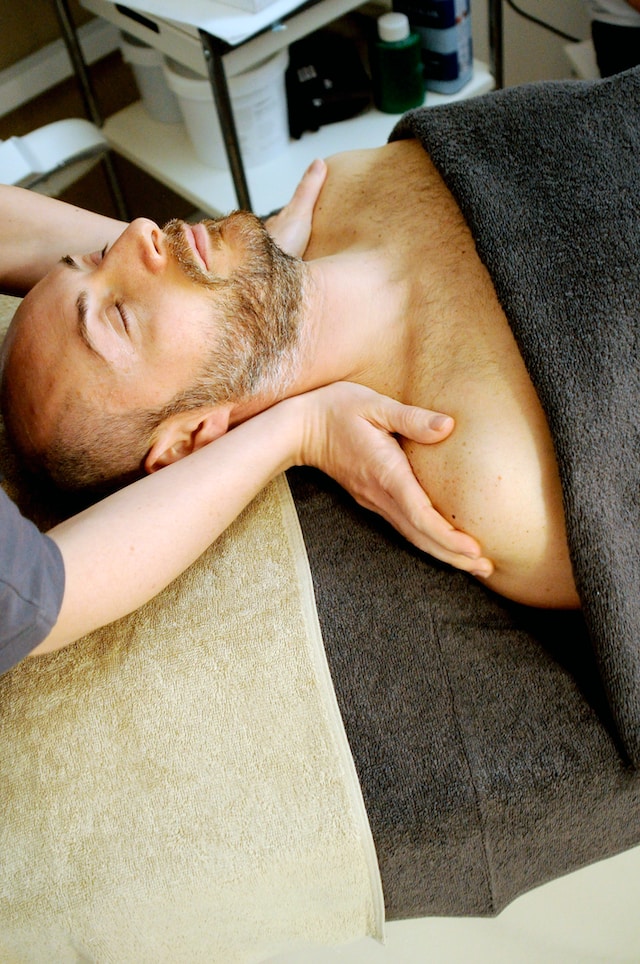
Naturopathy, an ancient system of medicine that originated in India, is gaining popularity today as people search for natural solutions to their health problems. The word naturopathy comes from Greek and means “nature cure”. It is based on the principle that the body has the innate ability to heal itself, given the right conditions.
Naturopathy is holistic in nature, taking into consideration the physical, mental, and emotional aspects of a person’s health. It advocates a balanced lifestyle, focusing on nutrition, exercise, and stress reduction to promote overall well-being. Naturopathic doctors work with patients to identify and address the underlying cause of their health problems, rather than merely treating symptoms.
One of the core principles of naturopathy is the concept of using natural remedies, such as herbs, nutrition, massage, and hydrotherapy, to stimulate the body’s own healing powers. Naturopathic doctors often incorporate both traditional and modern medical techniques to achieve optimal health.
Naturopathy is gaining acceptance as a complementary and alternative medicine approach to conventional Western medicine. It is particularly effective in treating chronic conditions like arthritis, asthma, and digestive disorders. Additionally, it is a safe and gentle approach to addressing issues like anxiety, depression, and insomnia.
Naturopathy empowers individuals to take control of their own health and promotes prevention over treatment. The goal is to create a health-promoting environment that supports the body’s own healing mechanisms and enhances vitality and quality of life. As people increasingly turn to natural, holistic approaches to health care, naturopathy is sure to become an even more important part of our wellness toolkit.
Core Principles of Naturopathy
Naturopathy is guided by a set of core principles that shape its approach to healing and promoting optimal health. These principles form the foundation of this ancient system of medicine and are fundamental in its holistic perspective and natural remedies.
- The Healing Power of Nature
Central to naturopathy is the belief in the body’s inherent ability to heal itself. This principle recognizes that the body possesses a vital force or life energy that, given the right conditions and support, can restore balance and wellness. Naturopathy aims to harness and enhance this healing power of nature through various techniques and modalities.

- Identify and Treat the Root Cause
Rather than merely treating symptoms, naturopathy seeks to identify and address the underlying causes of illness or imbalance. By understanding the root cause, the focus is shifted towards addressing the source of the problem, leading to true and lasting healing. This principle highlights the importance of personalized care and individualized treatment plans.
- Treat the Whole Person
Naturopathy recognizes that individuals are more than a collection of symptoms or organs. It embraces a holistic approach that takes into consideration the physical, mental, emotional, and spiritual aspects of a person’s health. By treating the whole person, naturopathic doctors aim to restore balance and promote overall well-being.
- Prevention is Paramount
Prevention is considered a cornerstone of naturopathy. By promoting healthy lifestyle choices, education, and awareness, naturopaths strive to empower individuals to take an active role in preventing illness and maintaining optimal health. This principle emphasizes the importance of cultivating habits that support long-term well-being.
- Do No Harm
Similar to the Hippocratic Oath, naturopathy adheres to the principle of “do no harm.” This means that treatment approaches should be gentle, non-invasive, and minimize the risk of adverse effects. Naturopathic doctors aim to work in harmony with the body’s natural processes, respecting its innate wisdom and avoiding interventions that may create further imbalance or harm.
- Educate and Empower
Naturopathy places great importance on patient education and empowerment. By providing individuals with knowledge, tools, and resources, naturopaths enable patients to actively participate in their own healing journey. This principle emphasizes the collaborative nature of the doctor-patient relationship, fostering a sense of empowerment and self-care.

Naturopathic Modalities and Therapies
In naturopathy, a wide range of modalities and therapies are utilized to support the body’s natural healing processes. These approaches aim to address the root cause of health issues and promote overall well-being. From herbal medicine to physical therapies, naturopathic doctors employ various techniques tailored to each individual’s unique needs. Here are some of the key modalities and therapies commonly used in naturopathy:
Herbal Medicine
Herbal medicine has been used for centuries as a natural remedy for various health conditions. Naturopathic doctors rely on the healing properties of plants to provide support and balance to the body. Through the use of herbal extracts, teas, or topical applications, specific herbs are chosen to address the underlying causes of illness and encourage the body’s innate healing abilities.
Nutritional Counseling
One of the fundamental principles of naturopathy is the belief that food plays a vital role in our health. Naturopathic doctors offer personalized nutritional counseling to help individuals make informed dietary choices that support optimal well-being. By assessing individual needs, dietary imbalances, and food sensitivities, naturopaths can develop tailored meal plans to address specific health concerns. They may also recommend supplements to ensure proper nutrient intake.
Hydrotherapy
Hydrotherapy, also known as water therapy, is a therapeutic approach that utilizes the healing power of water. Through the use of hot or cold water applications, such as compresses or baths, this modality helps stimulate circulation, relieve pain, and promote detoxification. Hydrotherapy can be particularly beneficial for conditions like arthritis, muscle tension, and respiratory ailments.
Physical Therapies
Physical therapies encompass a range of hands-on techniques aimed at restoring balance and promoting healing. These may include techniques such as massage therapy, chiropractic adjustments, osteopathic manipulations, or craniosacral therapy. These modalities help alleviate pain, improve circulation, enhance joint mobility, and support the body’s structural health.
Mind-Body Medicine
As naturopathy recognizes the interconnectedness of the body and mind, mind-body approaches are frequently incorporated into treatment plans. Practices such as meditation, deep breathing exercises, mindfulness, and guided imagery are utilized to reduce stress, improve mental clarity, and enhance overall emotional well-being. These practices address the emotional and energetic aspects of health, bringing about a sense of balance and harmony.
Homeopathy
Homeopathy is a system of medicine based on the principle of “like cures like.” This modality utilizes highly diluted substances to stimulate the body’s self-healing response. Naturopathic doctors carefully select homeopathic remedies that match an individual’s symptoms and constitutional characteristics. Homeopathy is a gentle yet powerful approach used to address a wide range of acute and chronic conditions.
Conditions Treated with Naturopathy
Naturopathy offers a holistic approach to healthcare, focusing on identifying and addressing the root cause of health issues rather than just treating symptoms. By utilizing natural therapies and lifestyle interventions, naturopathic doctors aim to restore balance and vitality to the body. Here are some of the common conditions that can be effectively treated with naturopathy:

Digestive Disorders:
- Irritable Bowel Syndrome (IBS): Naturopathic doctors will work to identify possible triggers, such as food sensitivities or stress, and create a customized diet plan and stress reduction techniques to manage symptoms.
- Acid Reflux: Through dietary modifications, herbal remedies, and techniques to improve digestion, naturopathic medicine can help reduce the frequency and intensity of acid reflux symptoms.
- Crohn’s Disease and Ulcerative Colitis: Naturopathy focuses on reducing inflammation in the gut through dietary changes, herbal supplements, probiotics, and stress management techniques.
Chronic Pain:
- Arthritis: Naturopaths may recommend anti-inflammatory herbs, physical therapies, and nutritional interventions to reduce joint pain and improve mobility.
- Fibromyalgia: Naturopathic medicine takes a comprehensive approach to managing fibromyalgia, incorporating dietary changes, stress reduction techniques, and natural pain management strategies.
- Headaches and Migraines: Naturopaths can help identify triggers and develop personalized plans involving lifestyle modifications, herbal remedies, and stress reduction techniques to alleviate headache symptoms.
Hormonal Imbalances:
- Menopause: Naturopathy focuses on balancing hormones through dietary changes, herbal remedies, and lifestyle modifications to alleviate common symptoms such as hot flashes, mood swings, and sleep disturbances.
- Polycystic Ovary Syndrome (PCOS): Naturopathic doctors will work to address underlying hormonal imbalances through nutrition, botanical medicine, and stress reduction techniques.
- Thyroid Disorders: Naturopathy takes a holistic approach to thyroid health, incorporating dietary interventions, herbal remedies, and lifestyle modifications to support optimal thyroid function.
Mental Health:

Anxiety and Depression: Naturopathy emphasizes the connection between mental health and physical well-being. Naturopathic doctors may recommend nutritional interventions, herbal remedies, mind-body techniques, and lifestyle modifications to support mental health.
- Insomnia: Naturopaths can work with patients to identify and address the underlying causes of sleep disturbances, using techniques such as relaxation exercises, herbal remedies, and sleep hygiene practices.
Immune System Disorders:
- Allergies: By addressing gut health, reducing inflammation, and strengthening the immune system, naturopathy offers a comprehensive approach to managing allergies without relying solely on antihistamines.
- Autoimmune Conditions: Naturopathic medicine focuses on reducing inflammation and supporting the immune system through targeted dietary and lifestyle modifications, herbal remedies, and stress management techniques.
This is just a glimpse of the many conditions that can be effectively treated through naturopathy. It is important to consult with a qualified naturopathic doctor to receive personalized care and to develop a comprehensive treatment plan tailored to your specific needs.
Naturopathy offers a natural and holistic approach to health and wellness. By harnessing the body’s own healing powers and addressing the root cause of health issues, naturopathic doctors aim to restore balance and promote optimal well-being. With its focus on personalized care, patient education, and gentle interventions, naturopathy empowers individuals to take an active role in their own health journey. As people continue to seek natural and holistic solutions to their health problems, naturopathy is poised to become an even more important part of our wellness toolkit. Embracing the principles and modalities of naturopathy can lead to a healthier and more vibrant life.
